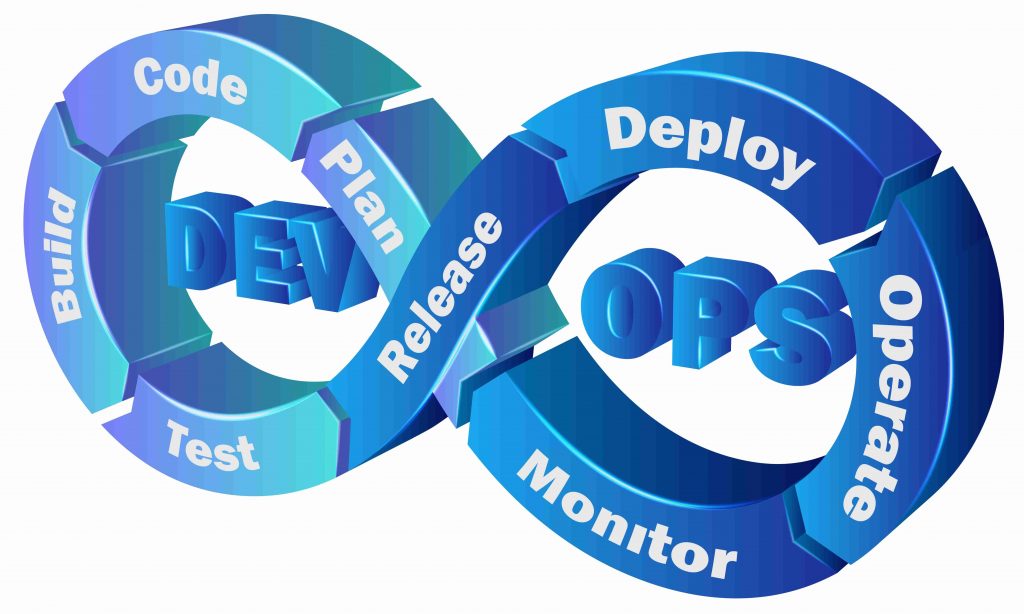What is DevOps?
In the ever-evolving landscape of software development, organizations are constantly searching for innovative methodologies that can streamline their processes, improve collaboration, and deliver high-quality software at an accelerated pace. One such methodology that has gained significant traction and is transforming the industry is DevOps. By breaking down silos between development and operations teams, DevOps fosters a culture of collaboration, automation, and continuous improvement, ultimately leading to numerous advantages throughout the software development lifecycle. In this blog, we will explore the remarkable advantages of DevOps and how it is reshaping the software development landscape for the better.

What Problem Does DevOps Solve?
DevOps solves the challenges of slow release cycles, poor communication, lack of agility, and quality issues, enabling organizations to deliver software faster, with higher quality, and in a more efficient and collaborative manner.
The phrase “It worked on my machine” is not used by developers in a DevOps environment when a problem arises. Additionally, everyone on the team is aware of the changes, which greatly simplifies incident management.
How Does DevOps Work?
DevOps works by integrating development and operations teams, breaking down silos, and implementing collaborative practices throughout the software development lifecycle. Here are some followings of how it works:

Collaboration and Communication (CC)
DevOps emphasizes effective communication and collaboration between development, operations, and other relevant teams. Regular meetings, shared tools, and open channels of communication foster a culture of collaboration.
Continuous Integration (CI)
Developers frequently merge their code changes into a shared repository, triggering an automated build process. CI tools automate tasks such as compiling, testing, and static code analysis, ensuring that changes integrate smoothly and identifying issues early.
Continuous Delivery and Deployment
Continuous delivery and deployment techniques are used after code modifications have passed through CI. The deployment pipelines, environment provisioning, and configuration management are all automated by CD during the release process. This makes frequent and dependable software releases possible.
Infrastructure as Code (IaC)
DevOps leverages IaC tools to define and manage infrastructure in a programmatic and version-controlled manner. Infrastructure is treated as code, enabling rapid provisioning, configuration, and scalability. This approach enhances consistency and reduces manual effort.
Automated Testing
DevOps promotes automated testing at multiple levels, such as unit tests, integration tests, and end-to-end tests. Test automation ensures the early identification of bugs and allows for fast feedback, reducing the risk of defects reaching production.
Continuous Monitoring and Feedback
DevOps embraces continuous monitoring of applications and infrastructure. Real-time monitoring provides insights into system performance, stability, and user experience. Feedback loops inform development and operations teams about issues, enabling quick responses and continuous improvement.
DevOps Toolchain
Various tools and technologies support DevOps practices. These include version control systems (e.g., Git), CI/CD tools (e.g., Jenkins, GitLab CI), configuration management tools (e.g., Ansible, Chef, Puppet), containerization platforms (e.g., Docker, Kubernetes), and monitoring solutions (e.g., Prometheus, ELK stack).
Feedback and Iteration
DevOps encourages feedback from users, stakeholders, and operations teams. Data and feedback help identify areas for improvement and drive iterative enhancements to software and infrastructure.
Continuous Learning and Improvement
DevOps promote a culture of ongoing learning and development. Teams regularly reflect on their processes, metrics, and outcomes, seeking ways to optimize and enhance efficiency, quality, and delivery speed.
By integrating these practices and principles, DevOps enables organizations to deliver software rapidly, reliably, and with high quality. It promotes agility, collaboration, automation, and a focus on the end-user experience, leading to faster time to market, reduced risk, and improved customer satisfaction.
Advantages Of DevOps In Software Development

DevOps offers numerous advantages in software development. Here are some key benefits:
1. Accelerated Time to Market
DevOps streamlines the software development lifecycle, enabling faster delivery of new features, updates, and bug fixes. Continuous integration, automated testing, and deployment pipelines reduce manual effort and bottlenecks, allowing organizations to release software more frequently and respond quickly to market demands.
2. Improved Collaboration and Communication
DevOps breaks down silos between development, operations, and other teams, fostering a culture of collaboration and shared responsibility. Effective communication and collaboration result in fewer misunderstandings, faster issue resolution, and enhanced productivity.
3. Enhanced Software Quality
DevOps emphasizes automated testing at various levels, including unit tests, integration tests, and end-to-end tests. Continuous monitoring and feedback mechanisms help identify and address issues early in the development process, ensuring higher software quality and reducing the risk of production incidents.
4. Increased Efficiency and Productivity
DevOps automates repetitive tasks, such as building, testing, and deployment, reducing manual effort and minimizing human errors. Developers can focus more on coding and innovation, while operations teams can leverage infrastructure as code and automation tools for efficient provisioning and management of resources.
5. Scalability and Flexibility
DevOps embraces cloud computing and containerization technologies, enabling organizations to scale their infrastructure and applications dynamically. This scalability ensures that software can handle increased user demand and effectively adapts to changing business requirements.
6. Continuous Improvement
DevOps promotes a culture of continuous improvement through iterative development, regular feedback loops, and data-driven insights. Teams reflect on metrics, customer feedback, and performance indicators to identify areas of enhancement, allowing for ongoing refinement of processes and products.
7. Increased Stability and Reliability
DevOps practices, such as continuous monitoring and proactive incident response, help improve system stability and reliability. Issues can be detected and resolved quickly, minimizing downtime and enhancing the overall user experience.
8. Cost Optimization
DevOps helps organizations optimize costs by reducing manual effort, eliminating waste, and leveraging cloud resources efficiently. Automation, infrastructure as code, and right-sizing of infrastructure lead to better resource utilization and cost savings.
9. Security and Compliance
DevOps incorporates security practices throughout the software development lifecycle, promoting the concept of DevSecOps. Security measures, such as vulnerability scanning, code analysis, and access controls, are integrated into the development process, ensuring that security and compliance requirements are met.
By harnessing the advantages of DevOps, organizations can achieve faster time to market, improved collaboration, higher software quality, enhanced productivity, and greater agility. These benefits contribute to overall business success and customer satisfaction.

Conclusion
The advantages of DevOps in software development are undeniable. DevOps revolutionizes the way software is built, deployed, and managed, enabling organizations to thrive in today’s fast-paced and competitive digital landscape. By embracing DevOps practices, organizations experience accelerated time to market, delivering software faster and more frequently. Collaboration and communication improve significantly, breaking down barriers between teams and fostering a culture of shared responsibility. This collaboration leads to enhanced efficiency, productivity, and ultimately, better software quality.
DevOps offers a comprehensive set of advantages that transform software development into a collaborative, efficient, and customer-centric process. By embracing DevOps, organizations can achieve faster time to market, improved software quality, enhanced collaboration, scalability, cost optimization, and security. It is an indispensable methodology that empowers organizations to stay ahead in the digital era, delivering innovative and reliable software solutions that meet and exceed customer expectations.


 Schedule An Appointment
Schedule An Appointment